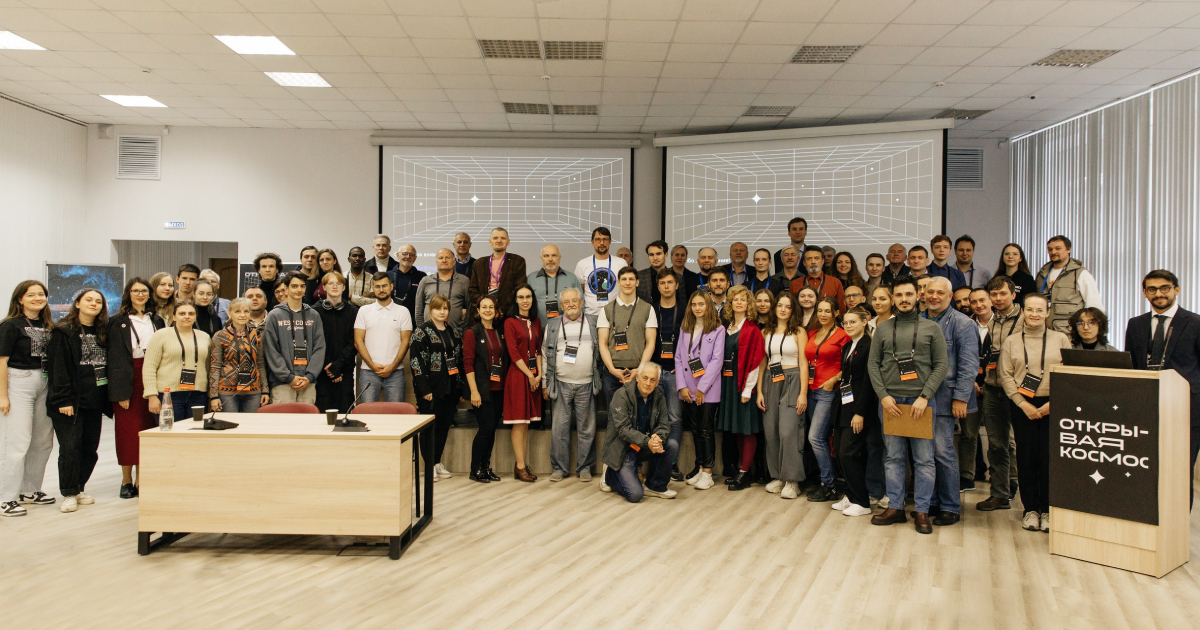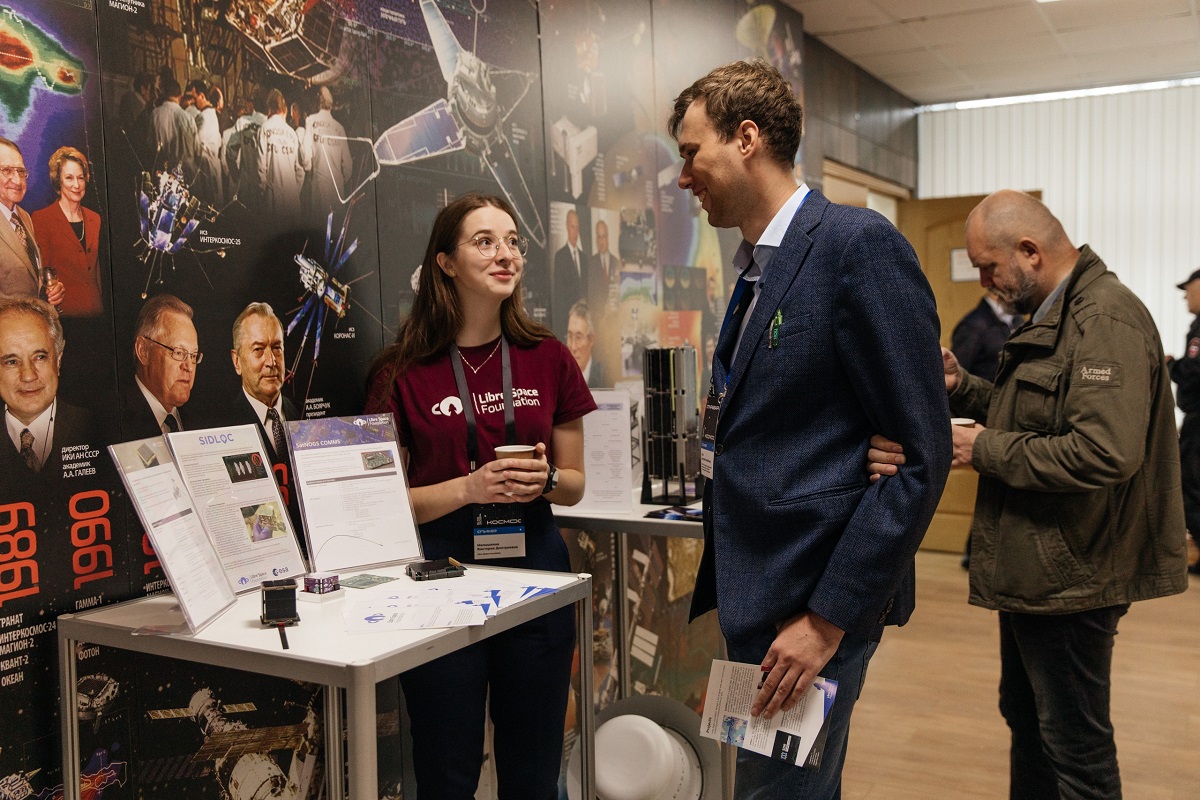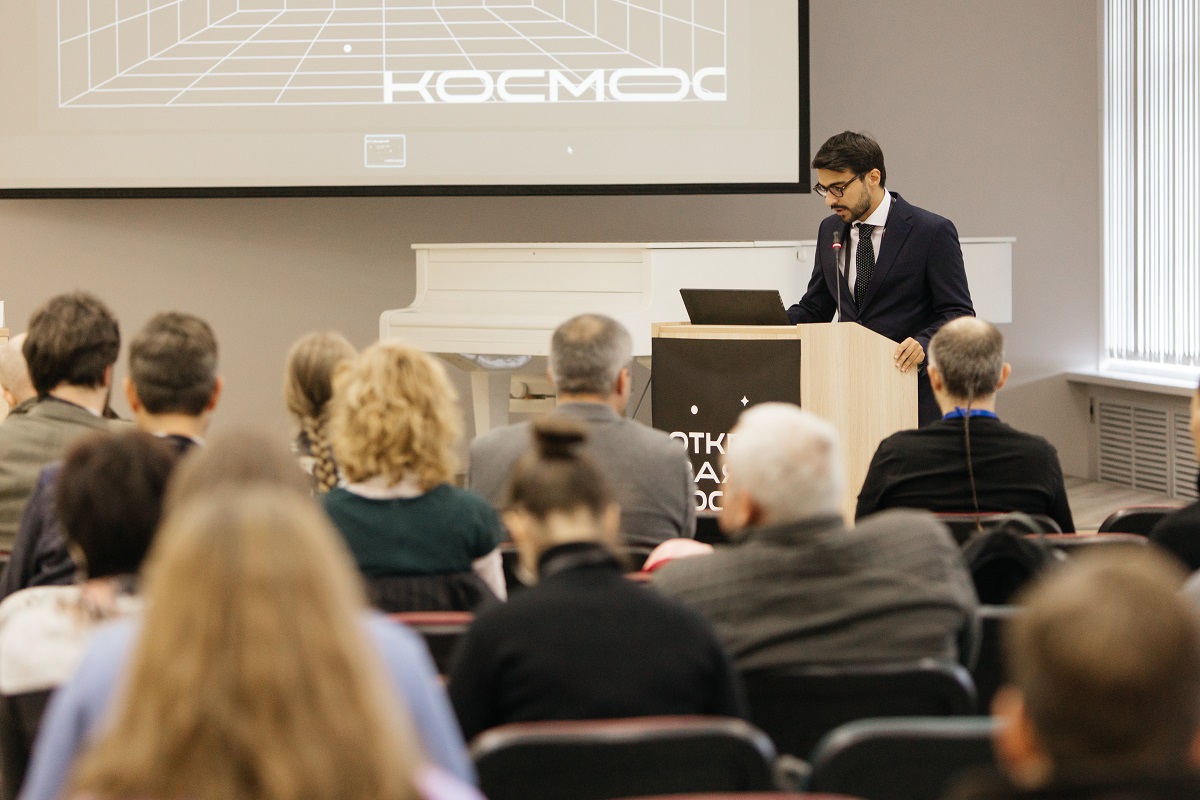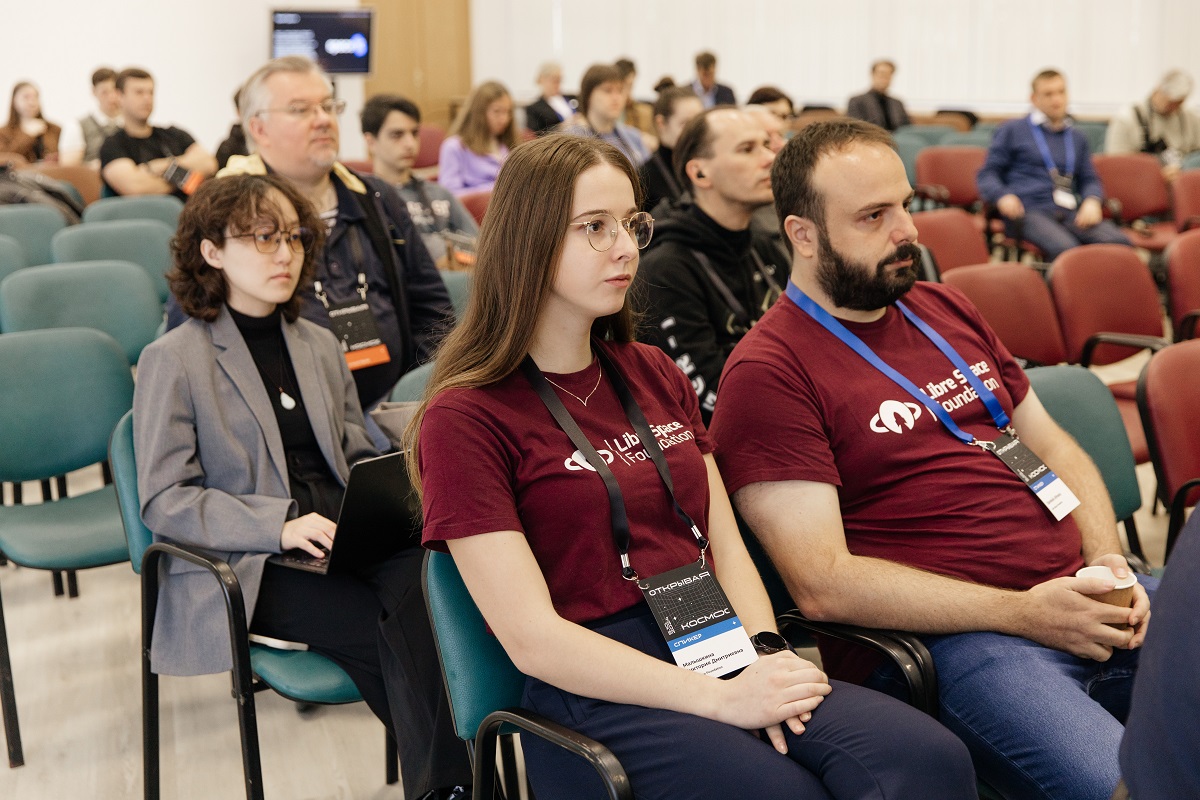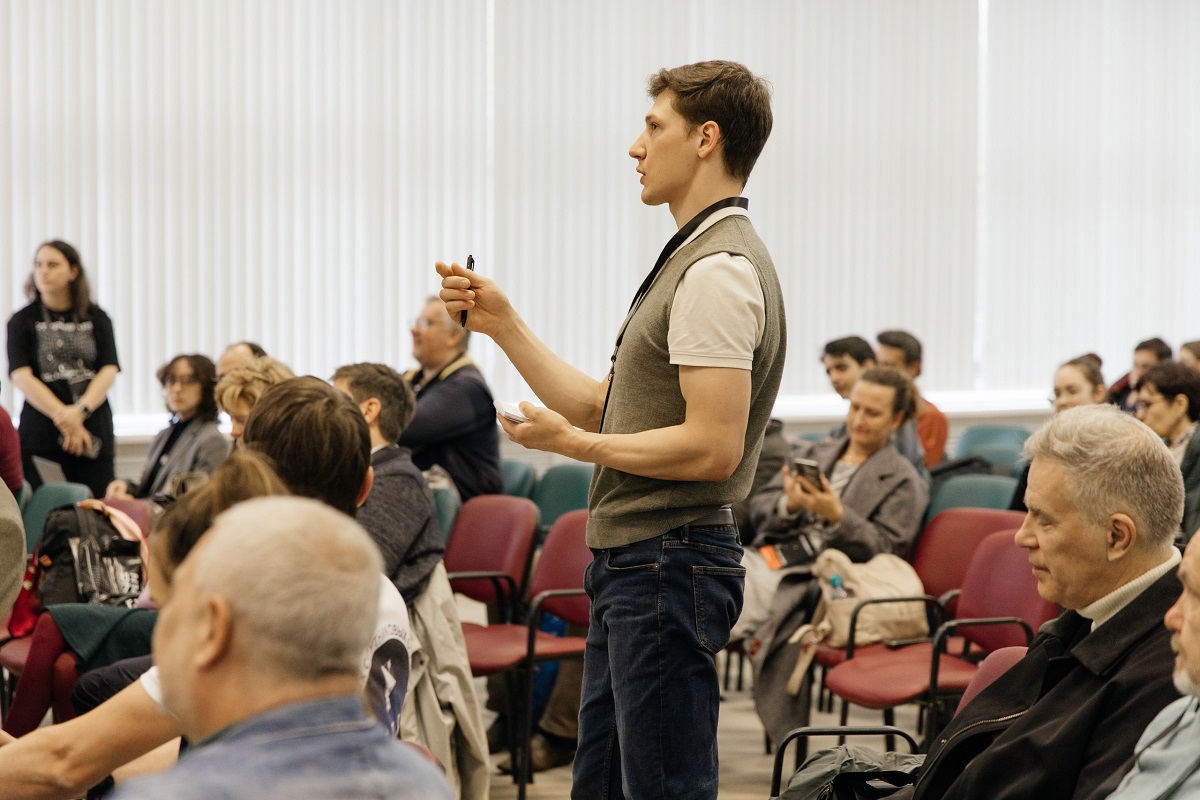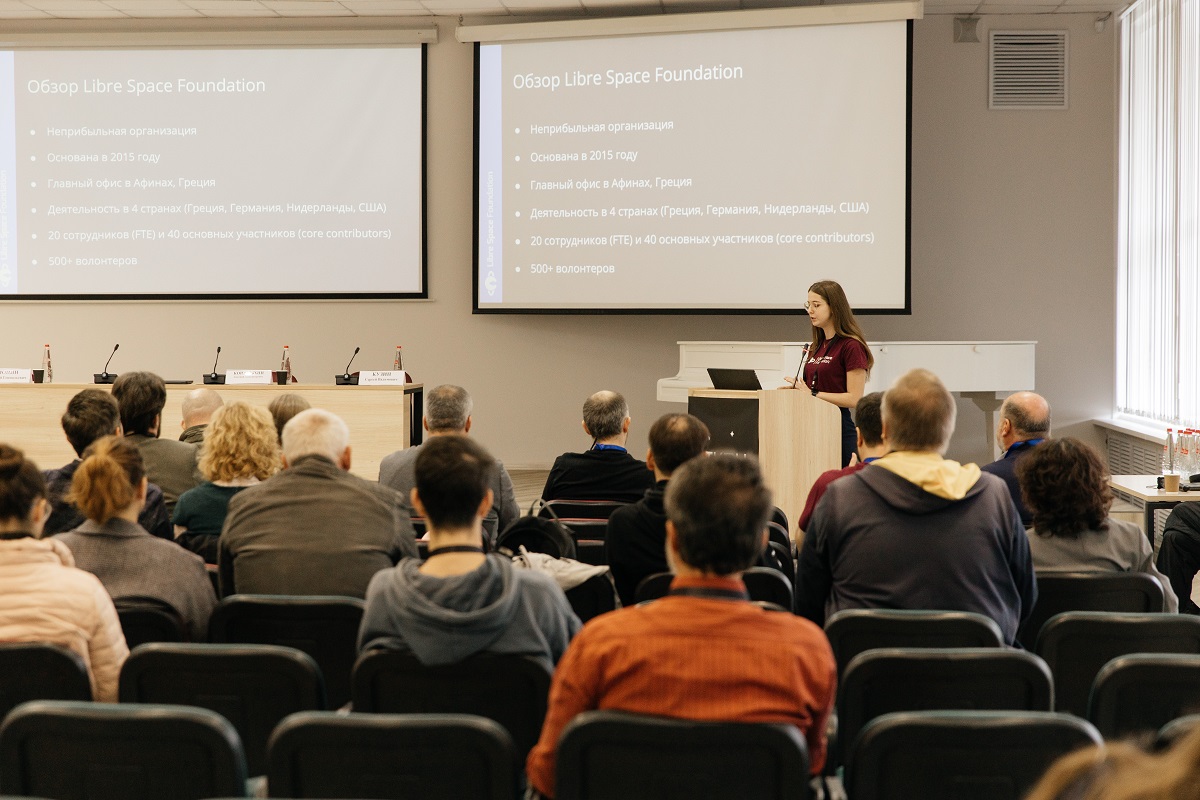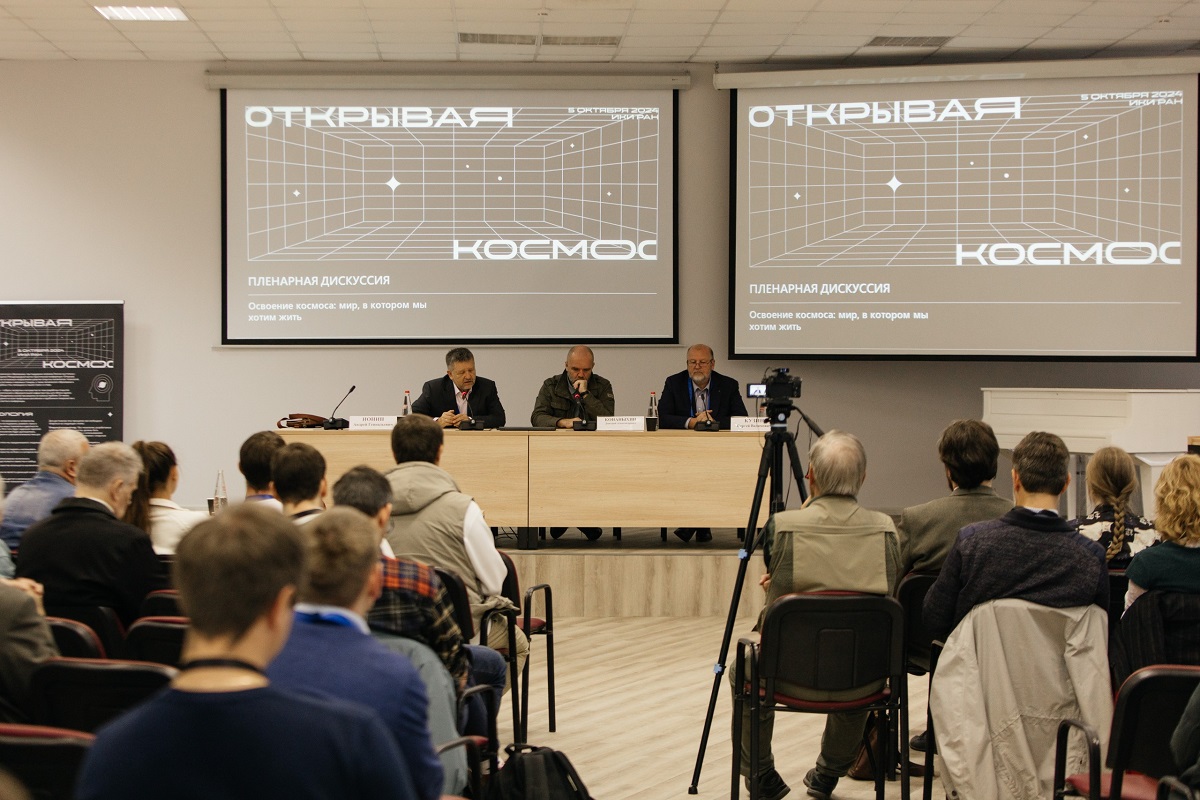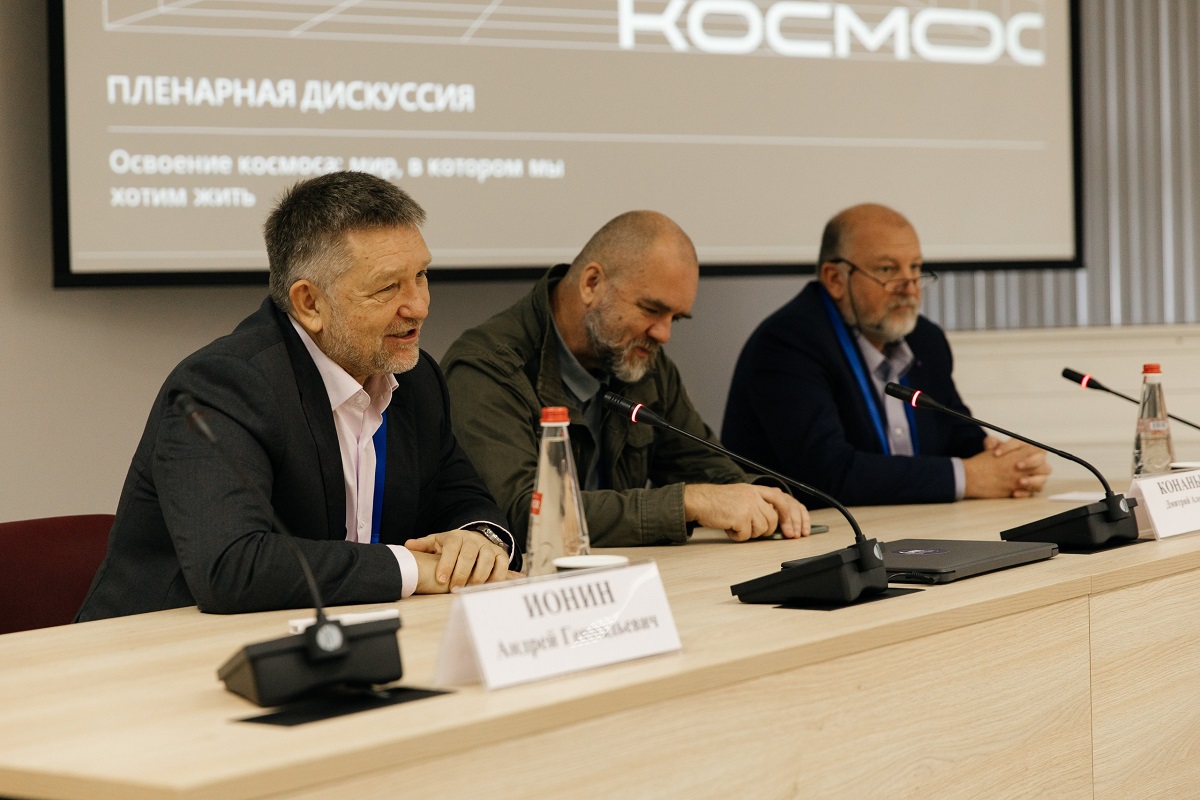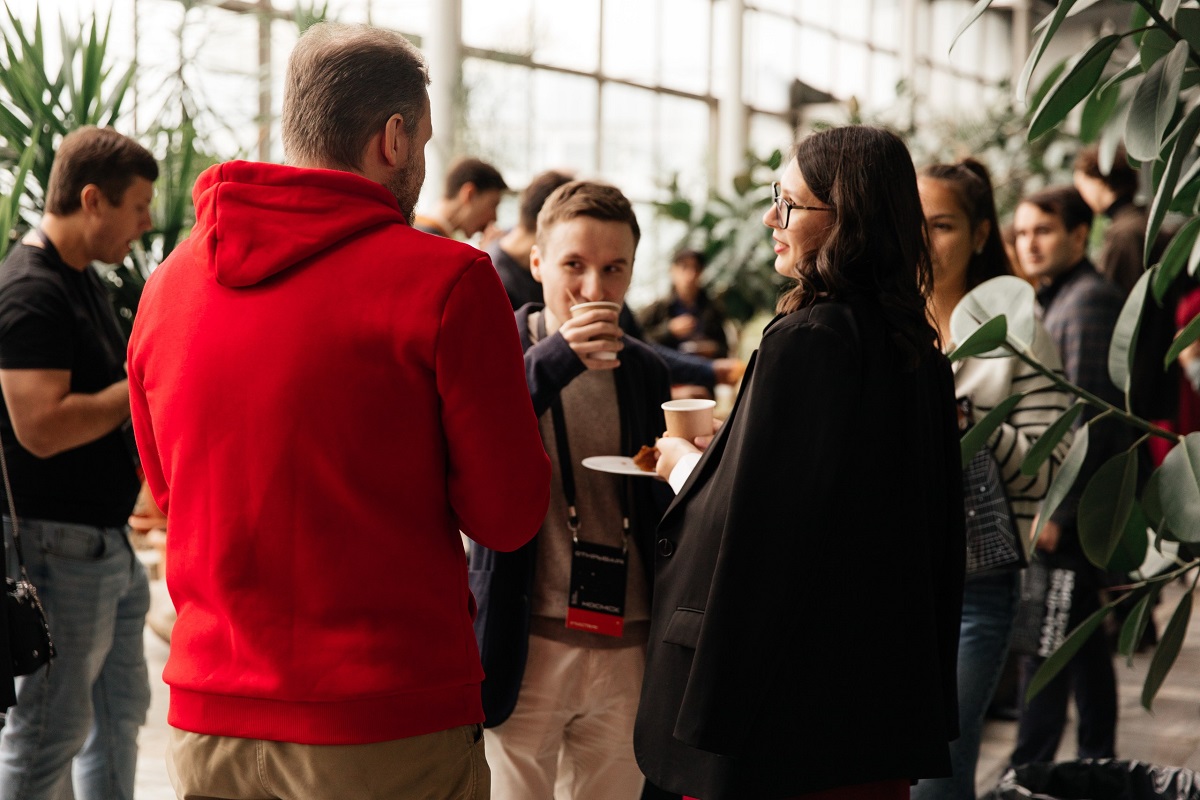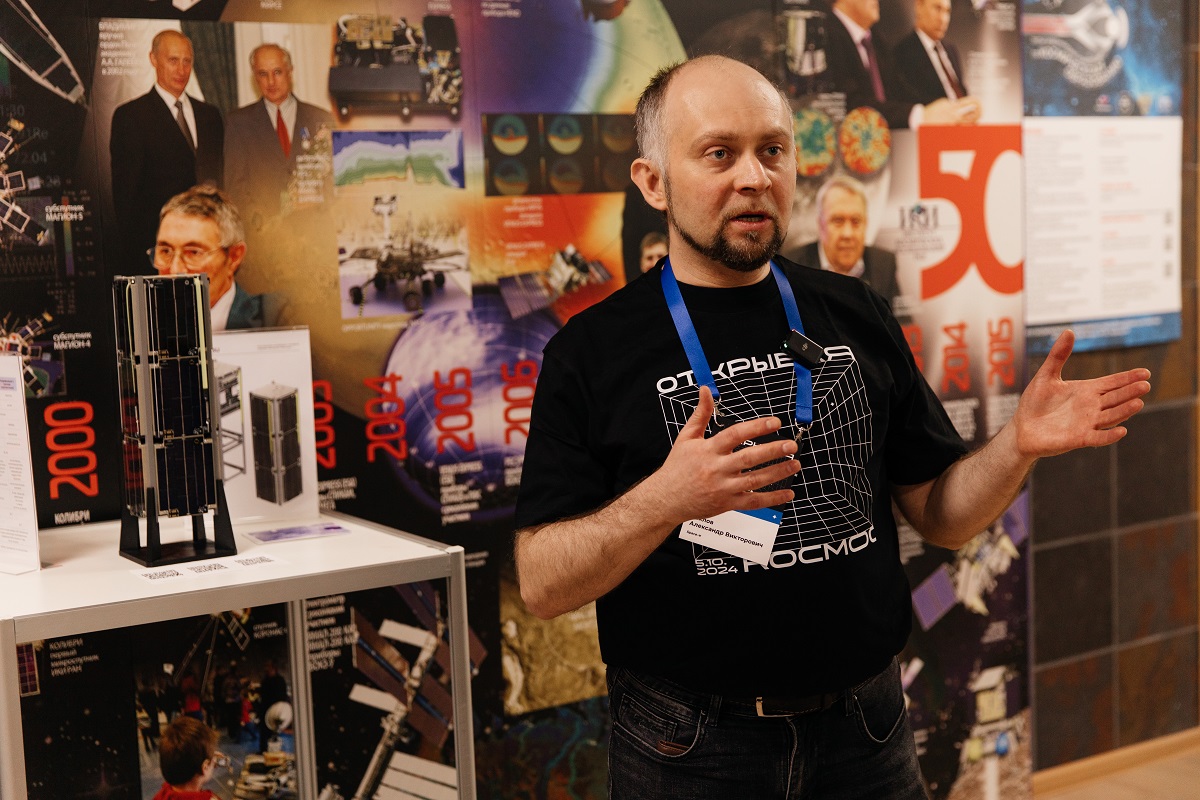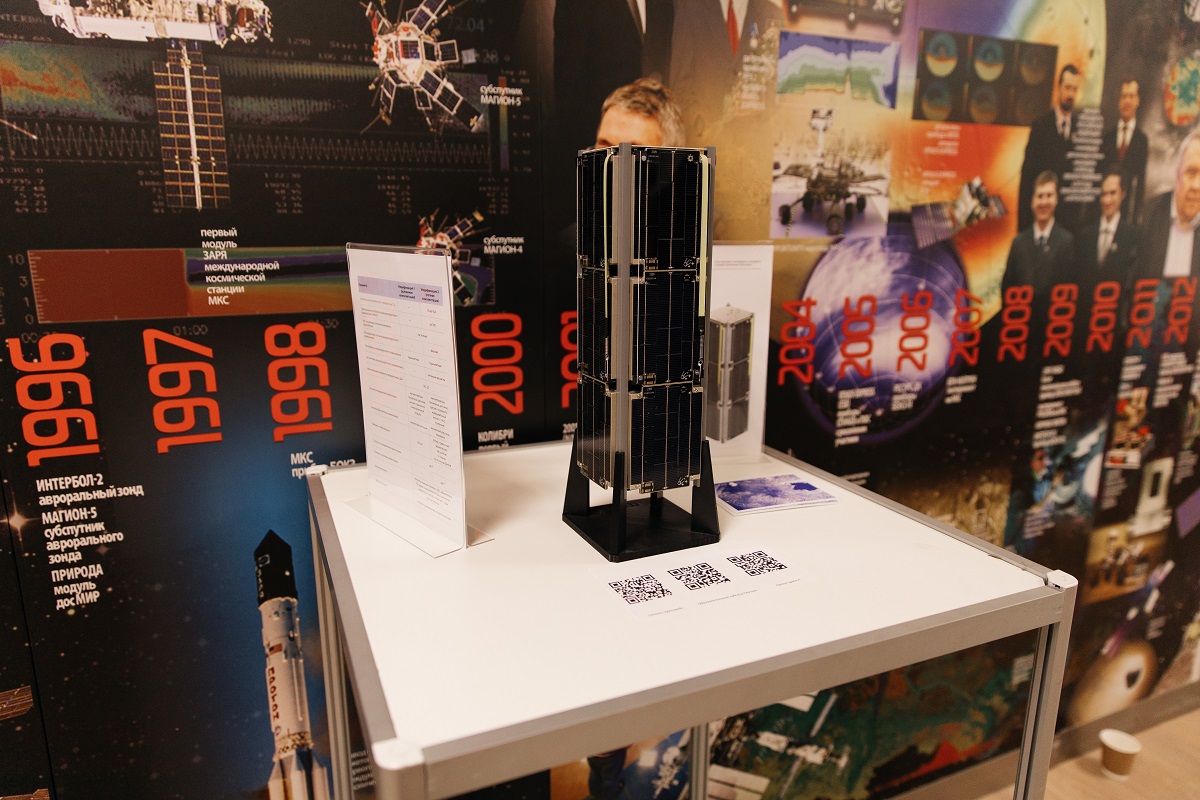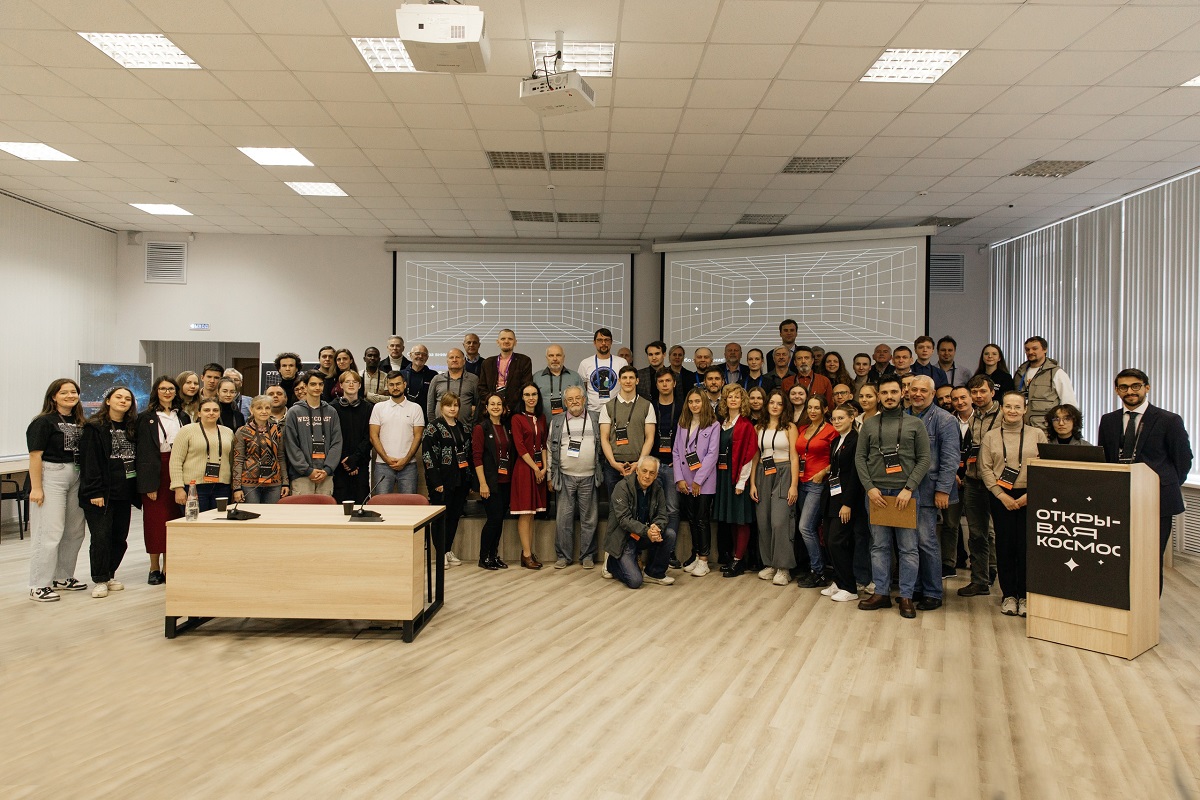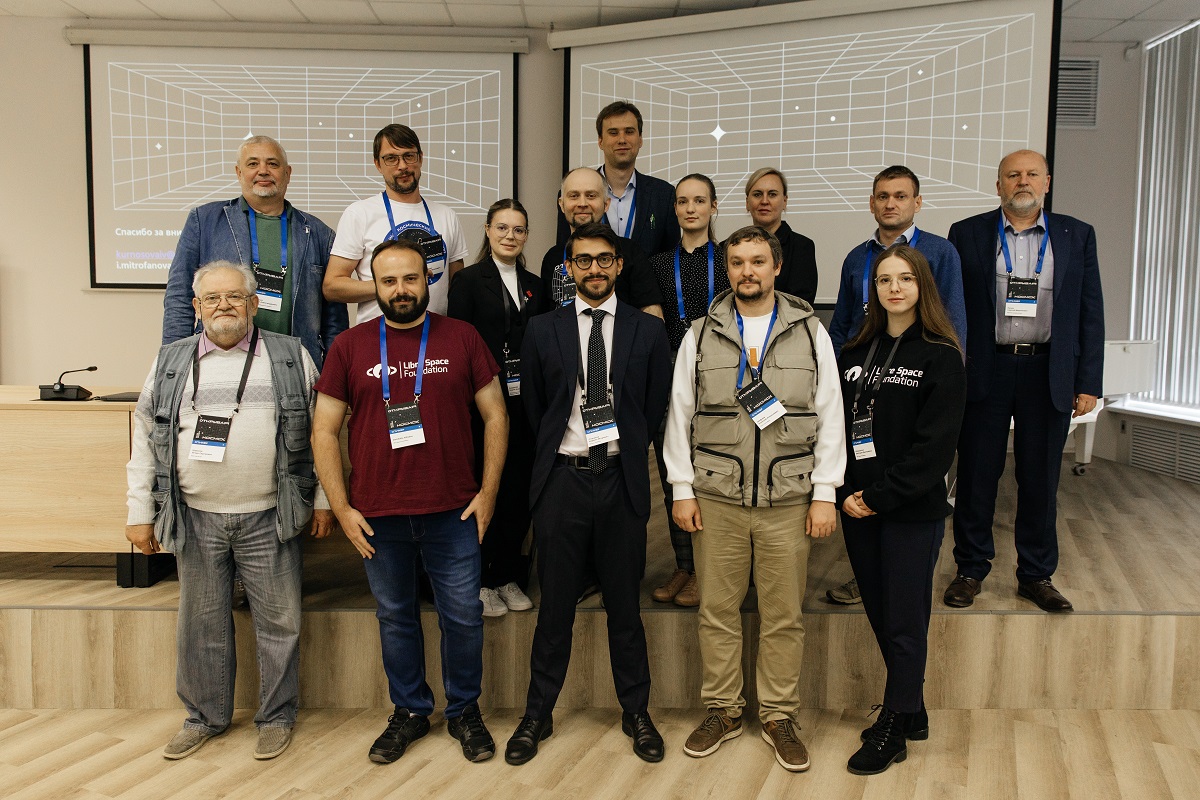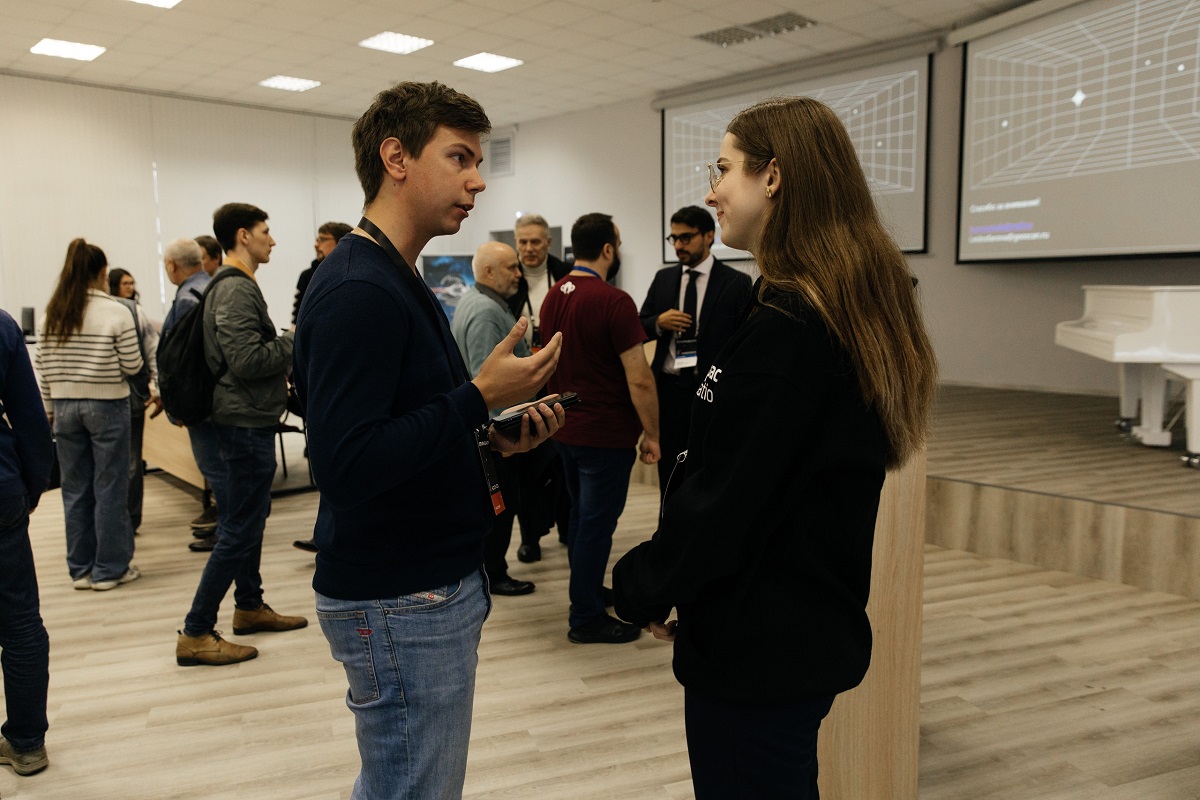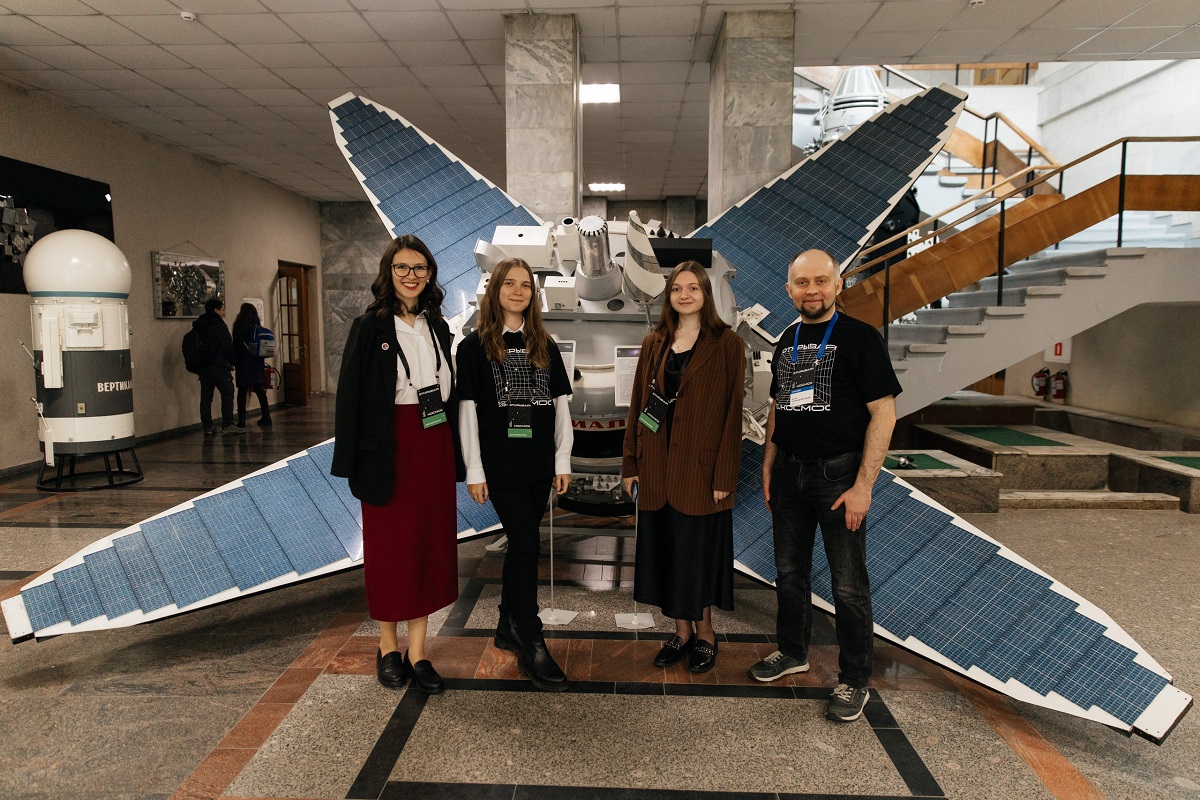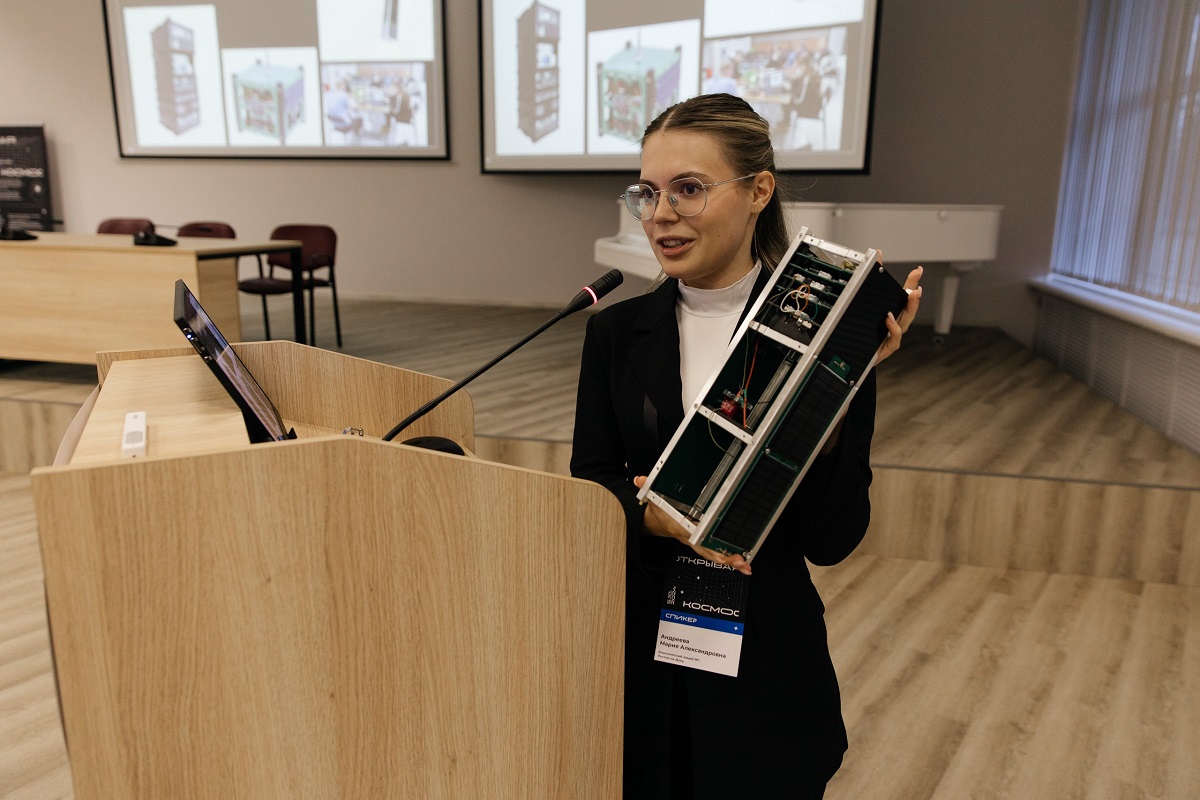Today, Moscow hosted the first scientific-practical conference “Making Space Open”, an international event for everyone interested in open space technologies and research. The event took place at the Space Research Institute of the Russian Academy of Sciences (IKI RAN), bringing together industry experts and enthusiasts, technology company specialists, radio amateurs, scientists, students, and schoolchildren. Many also joined online, with the livestream watched by over 1,000 people.
The plenary session was the key event of the conference, featuring a presentation on the Space-π educational project by Alexander Khokhlov, head of a small satellites projects department at Geoscan. He spoke about the significant contribution of Geoscan-Edelveis, the company’s first satellite, to the development of amateur radio satellite technology and community in Russia. A colleague from Greece also delivered a presentation on the activities of the international nonprofit Libre Space Foundation, which develops and supports open space technologies and projects.
The session concluded with a discussion titled “Space Exploration: The World We Want to Live In,” featuring invited experts—Andrey Ionin, member of the Council on Foreign and Defense Policy, Dmitry Konanykhin, host of Radio Russia, engineer and writer, and Sergey Kuzin, head of the Solar Astronomy Laboratory at the Space Plasma Physics Department of IKI RAN. They discussed current issues in modern space exploration, trends, promising directions, and what steps need to be prioritized for the successful development of the space industry.
“Right now, the technologies needed in space have enormous commercial potential. The first thing I would recommend is to focus on the studies of life in space. I mean not just humans but also plants, animals – how all this can live in space. In a few years, this will be the main global market. Not digital technologies, but biotechnologies – because they are applicable to humans, how they live, and the quality of life. That’s where the main market will be, that’s where the key technologies will be. Space is a great tool for exploring these technologies, perhaps in extreme conditions, to find solutions that can then be applied on Earth. The second direction is robotic systems – for example, for building and maintaining lunar bases, exploring the Moon, or repairing systems in near space. The third direction is finding projects that bring together the largest international community possible, something that unites people from different countries,” Andrey Ionin said during the discussion.
The sessions with reports were equally engaging and informative, each block thoroughly covering topics related to open space technologies, education, experiments, and successful current projects. Kirill Starikov, head of Geoscan’s ground systems department, discussed the ideology behind SONIKS, the open network of ground stations launched last year with support from the company, while scientists from Reshetnev University, Moscow State University, IKI RAN, the Institute of Solar-Terrestrial Physics (ISTP SB RAS), and the Ioffe Physical-Technical Institute spoke about the development of scientific and educational small spacecraft and their payloads. School teachers described their experience working with students in space-oriented classes and laboratories, as well as new exciting projects – concepts for a space park, a school observatory, and an astronomy club. The youngest participant was a schoolgirl from Rostov-on-Don, who shared how she conducts space lessons for younger students and launches her own projects on cubesat in space.
During the breaks, all attendees were free to explore a small exhibition in the hall: they saw the improved Geoscan 3U satellite platform, which forms the basis for five microsatellites of the Space-π project (to be launched in November 2024), the model of the UmKA-1 school satellite currently in orbit, and the Matrix Particle Detector (MADIZ), a device for studying the tracks of charged particles in Earth’s orbit, installed on the Altair satellite.
“This conference is an important step toward the future, toward the creation of an open and accessible space. Today we heard about the results already achieved in the development of our scientific and educational infrastructure, which will undoubtedly help us in further research. I am confident that all participants and listeners have come closer to understanding that space is accessible to everyone, and through joint efforts and openness in both results and methods of achievement, we will be able to conquer new heights and make technological and scientific discoveries. I hope this conference will become an annual event, attracting more diverse specialists, highlighting new projects, and popularizing space knowledge,” Kirill Starikov concluded.
